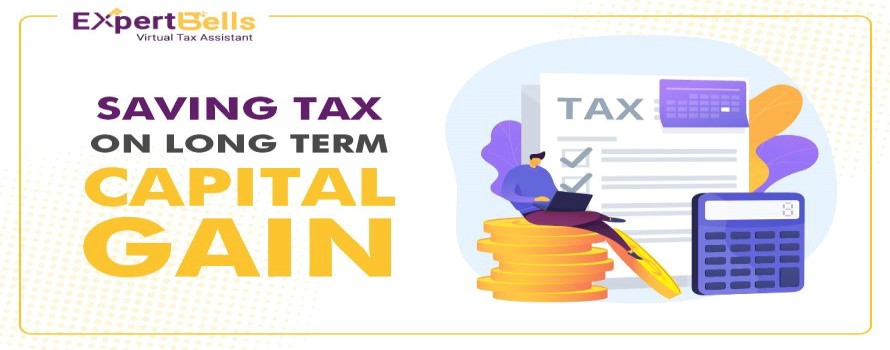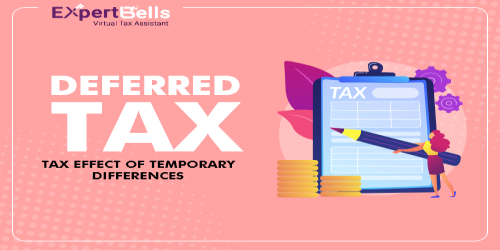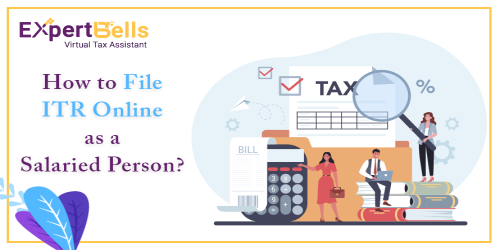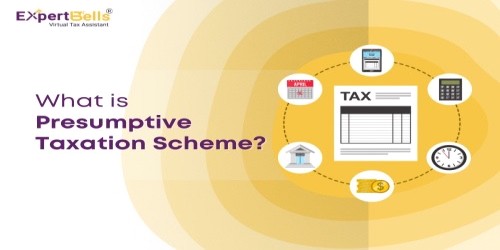Saving Tax on Long Term Capital Gain

When there is a sale of long term capital asset, the gains are usually quite large and are taxed at 20 %. Therefore, the tax amount comes out to be a large amount liable to be paid as Long term Capital Gain tax.
However, Govt. has given the option of claiming exemption from long term capital gains tax if the taxpayer reinvests the amount in certain specified forms of investment and can thereby save tax as per following sections:
- Section 54
- Section 54 EC
- Section 54 F
Section 54
The conditions that need to be satisfied to avail the benefit of this section are as follows:
- Eligible assessee- Individual/HUF
- The asset sold is residential property and new asset is also residential property.
- Long term capital gain arising from sale of a Residential property shall be exempted up to the amount invested in:
(i)Purchase of another residential property within 1 year before or 2 years after the transfer/sale of property and/or
(ii)Construction of another residential property within a period of 3 years from the date of property transfer/ sale.
Provided that the new residential house property purchased or constructed is not transferred within a period of 3 years from the date of acquisition.
NOTE: With effect from FY 2019-20, a capital gain exemption is available for purchase of 2 residential houses in India subject to the capital gain not exceeding INR 2cr. Also, the exemption is available only once in the lifetime of the seller.
Capital Gains Account Scheme
If the asset is sold in the previous year, and the seller is yet to purchase the new house property as the time limit of 2 years or 3 years has not yet expired, then the assessee is required to deposit the amount of gains in the Capital gains account scheme (in any branch of public sector, bank) before the due date for filing income tax returns. However, if the amount deposited in the Capital Gains Account Scheme is not utilized within the time limit mentioned, then it shall be treated as income of the previous year in which 3 years expire (from the date of transfer of the original asset).
Section 54 EC
The conditions that need to be satisfied to avail the benefit of this section are as follows:
- Eligible Assessee- All assesses
- The asset sold is Long term capital asset i.e., Land or building or both and new asset is Long term specified bonds notified by govt.
- Such Long term capital gain is exempted up to the amount invested in long term specified bonds of National Highways Authority of India (NHAI), Rural Electrification Corporation (REC) OR any other bonds notified by Central govt. within 6 months from the date of transfer for a minimum period of 3 years, subject to a maximum limit of INR 50 Lacs.
Withdrawal of Section 54EC Exemption
The exemption claimed under section 54EC would be withdrawn, in case the long term specified asset is transferred or converted into the money before the expiry of the period of three years or five years, as the case may be.
In case of transfer / conversion, the amount of exemption claimed under section 54EC shall be deemed to be income under ‘Capital Gains’ as long term capital gain in the previous year in which the long term specified asset is transferred or converted.
Section 54F
The conditions that need to be satisfied to avail the benefit of this section are as follows:
1. Eligible Assessee: Individuals/ HUF
2. The asset sold is a Long term capital asset other than residential property and new asset is a residential property.
3. Long term capital gain is exempted if entire net sales consideration is invested in:
(i) Purchase of one residential property within1 year before or 2 years after the date of transfer of property or
(ii) Construction of one residential property within 3 years after the date of such transfer
4. In case the whole sale consideration is not invested and only a part of the sale consideration is invested, exemption shall be allowed proportionately i.e.
Amount Exempt = Capital Gain* Amount Invested / Net Sale Consideration
5. This exemption is not available if any of the below conditions is satisfied:
(i) Assessee owns more than 1 residential house on the date of transfer of such asset.
(ii) The assessee purchases any other residential house within 1 year or constructs any other residential house within 3 years from the date of transfer.
Capital Gains Deposit Account Scheme
If the amount is not re-invested by the last day of filing of the return, then the balance amount should be deposited in the capital gain deposit account scheme.
Written By
CA Palak S Jain
CMO, Financial Analyst
Expertbells Consulting Private Limited
Related Articles

Deferred Tax- Tax Effect of Temporary Differences
Deferred tax is the tax for those items which are accounted in Profit & Loss A/c but not accounted in taxable income which may be accounted in taxable income in future & vice versa. It shall either be paid or has already been settled due to momentary inconsistency between an organization’s income statement and tax statement. The word Deferred has been derived from the word “Deferments” which means setting out for something to happen at a future date.

How to Save Income Tax on Salary Income
As soon as the Assessment year comes, the salaried class gets agitated about their tax returns. For you it is foremost to understand the tax slab and what is the meaning of each of your salary breakup component. By acknowledging this, you can figure out how to save tax. Let us understand about your salary components and how you can save tax on your salary income point by point.

SECTION 194Q OF THE INCOME TAX ACT 1961-TDS ON PURCHASE OF GOODS
Any person, being a buyer who is responsible for paying any sum to Seller for purchase of any goods of the value or aggregate of such value exceeding fifty lakh rupees in any previous year, shall, at the time of credit of such sum to the account of the seller or at the time of payment thereof by any mode, whichever is earlier, deduct an amount equal to 0.1 per cent. of such sum exceeding fifty lakh rupees as income-tax
Leave A Reply
Your email address will not be published. Required fields are marked *
Most Popular Blogs


What is a Mentor? Definition, Purpose & More

Difference Between Mentor and Mentee

How To Find A Business Mentor: A Complete Guide



5 Comments
Lorem Ipsum is simply dummy text of the printing and typesetting industry. Lorem Ipsum has been the industry's standard dummy text ever since the 1500s, when an unknown printer took a galley of type and scrambled it to make a type specimen book. It has survived not only five centuries, but also the leap into electronic typesetting, remaining essentially unchanged. It was popularised in the 1960s with the release of Letraset sheets containing Lorem Ipsum passages, and more recently with desktop publishing software like Aldus PageMaker including versions of Lorem Ipsum.
Lorem Ipsum is simply dummy text of the printing and typesetting industry. Lorem Ipsum has been the industry's standard dummy text ever since the 1500s, when an unknown printer took a galley of type and scrambled it to make a type specimen book. It has survived not only five centuries, but also the leap into electronic typesetting, remaining essentially unchanged. It was popularised in the 1960s with the release of Letraset sheets containing Lorem Ipsum passages, and more recently with desktop publishing software like Aldus PageMaker including versions of Lorem Ipsum.
Lorem Ipsum is simply dummy text of the printing and typesetting industry. Lorem Ipsum has been the industry's standard dummy text ever since the 1500s, when an unknown printer took a galley of type and scrambled it to make a type specimen book. It has survived not only five centuries, but also the leap into electronic typesetting, remaining essentially unchanged. It was popularised in the 1960s with the release of Letraset sheets containing Lorem Ipsum passages, and more recently with desktop publishing software like Aldus PageMaker including versions of Lorem Ipsum.